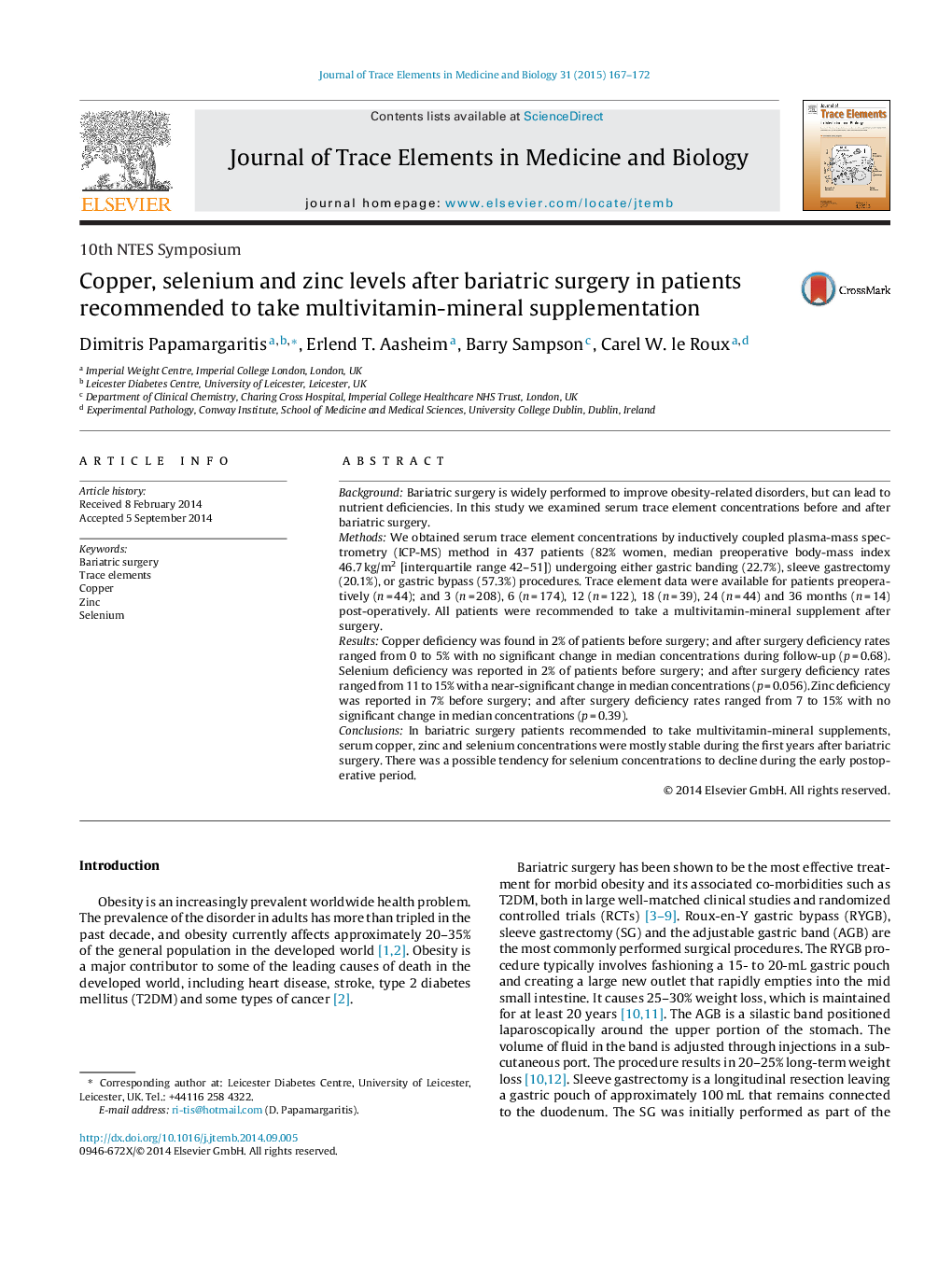| Article ID | Journal | Published Year | Pages | File Type |
|---|---|---|---|---|
| 1226388 | Journal of Trace Elements in Medicine and Biology | 2015 | 6 Pages |
BackgroundBariatric surgery is widely performed to improve obesity-related disorders, but can lead to nutrient deficiencies. In this study we examined serum trace element concentrations before and after bariatric surgery.MethodsWe obtained serum trace element concentrations by inductively coupled plasma-mass spectrometry (ICP-MS) method in 437 patients (82% women, median preoperative body-mass index 46.7 kg/m2 [interquartile range 42–51]) undergoing either gastric banding (22.7%), sleeve gastrectomy (20.1%), or gastric bypass (57.3%) procedures. Trace element data were available for patients preoperatively (n = 44); and 3 (n = 208), 6 (n = 174), 12 (n = 122), 18 (n = 39), 24 (n = 44) and 36 months (n = 14) post-operatively. All patients were recommended to take a multivitamin-mineral supplement after surgery.ResultsCopper deficiency was found in 2% of patients before surgery; and after surgery deficiency rates ranged from 0 to 5% with no significant change in median concentrations during follow-up (p = 0.68). Selenium deficiency was reported in 2% of patients before surgery; and after surgery deficiency rates ranged from 11 to 15% with a near-significant change in median concentrations (p = 0.056). Zinc deficiency was reported in 7% before surgery; and after surgery deficiency rates ranged from 7 to 15% with no significant change in median concentrations (p = 0.39).ConclusionsIn bariatric surgery patients recommended to take multivitamin-mineral supplements, serum copper, zinc and selenium concentrations were mostly stable during the first years after bariatric surgery. There was a possible tendency for selenium concentrations to decline during the early postoperative period.
